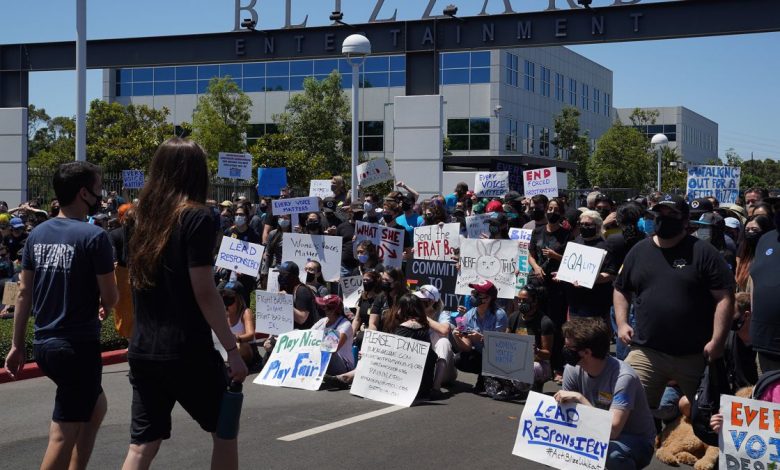The Activision Blizzard Lawsuit: A Painful Look into the Video Game Industry

Jackson Murphy ’25 / Emertainment Monthly Staff Writer
On July 20th, 2021, the California Department of Fair Employment and Housing filed a lawsuit against video game industry giant Activision Blizzard. The company itself is behind famed and wildly popular games like World of Warcraft, Overwatch, and the Call of Duty franchise. However, Activision Blizzard’s fame, and already waning popularity with fans, has been left severely tarnished under the horrific workplace culture revealed by the lawsuit.
Within the lawsuit, widespread accounts of women being paid less than men, ‘frat boy’ workplace culture, sexual harassment, consistent alcohol abuse, and male employees harassing female employees in their cubicles were all detailed. Of all the stories detailed by the Department of Fair Employment and Housing, none were as horrendous as a female employee’s death by suicide on a company trip, allegedly due to a sexual relationship with a male supervisor, who brought sex toys. This same employee experienced other horrors, like colleagues spreading a photo of her genitalia to other male employees during a holiday party. However, the July 20th lawsuit was merely the prologue to the Activision Blizzard controversy. Over the next few months: journalists, insiders, and further developments shed more and more light upon the mistreatment of workers within the company.
Of course, on the same day that the lawsuit became public, Activision Blizzard promptly released a response. It stated that “The DFEH includes distorted, and in many cases false, description of Blizzard’s past” and that the “picture the DFEH paints is not the Blizzard workplace of today.” However, as more information became public, the initial statements by Activision Blizzard became a blatant attempt to downplay the issue. By the near end of September 2021, the information shared in the lawsuit had obviously become more than just allegations.
Since July 21st, the date the suit became public, CEO Bobby Kotick called the first response “tone deaf” and that the company was “immediately evaluating managers and leaders across the company. Employees hosted a walk out, Blizzard’s president J. Allen Brack resigned, and three important figures within the company departed. An organization named the Communication Workers of America filed an unfair labor practice suit, Blizzard’s chief legal officer left, and the Federal Securities and Exchange Commission announced an investigation.
However, alongside continued developments came more workers, whether former or current, sharing their own experiences at the company, confirming many accusations. For example, in just one interview published by IGN, seven past and present workers described how women were treated differently than men and there was an apparent “illusion that every voice matters.” Furthermore, a common conception among the interviewers was that higher-ups, especially of successful games, were untouchable and seen as hero figures, providing a small piece in the puzzle of how things could remain so bad for so long.
As the Activision-Blizzard scandal continues to develop, questions arise as to what this means for the industry, and, if such an important and once beloved company is haunted by worker mistreatment, what conditions are like elsewhere. The sad truth behind the Activision-Blizzard lawsuit is it’s just a peek into the issues that plague video game production, an industry famous for grueling working conditions and often mandatory 100 hour work weeks. Despite its status as a business giant, video game production is an entertainment-focused industry that, unlike it’s film counterpart, is completely lacking in unions. And, until recently, it was limited in robust government attention, leaving many workers defenseless against any cruel conditions.
While the Activision-Blizzard odyssey will forever remain a dark chapter in the history of video games, the attention it has gathered from enthusiasts, insiders, and government officials alike is a positive step towards improving conditions for production studios. As more and more people push for a better and fairer video game industry as a whole, the only question becomes: How soon will these needed changes come?